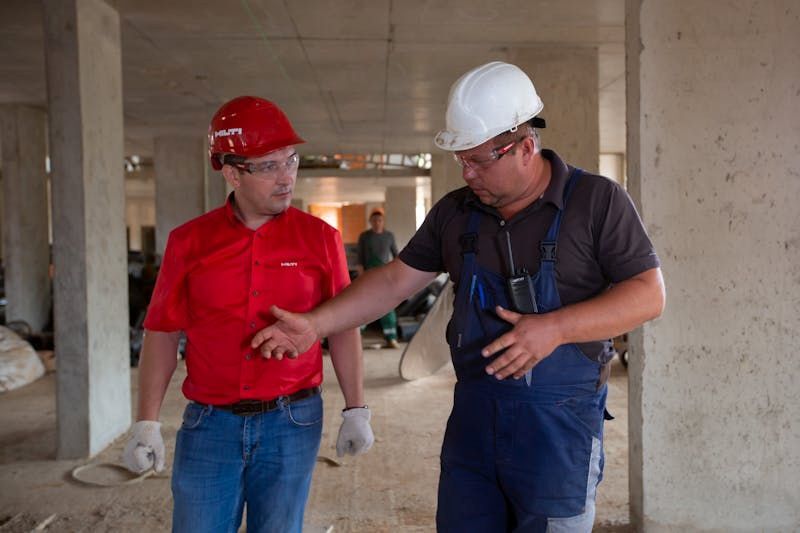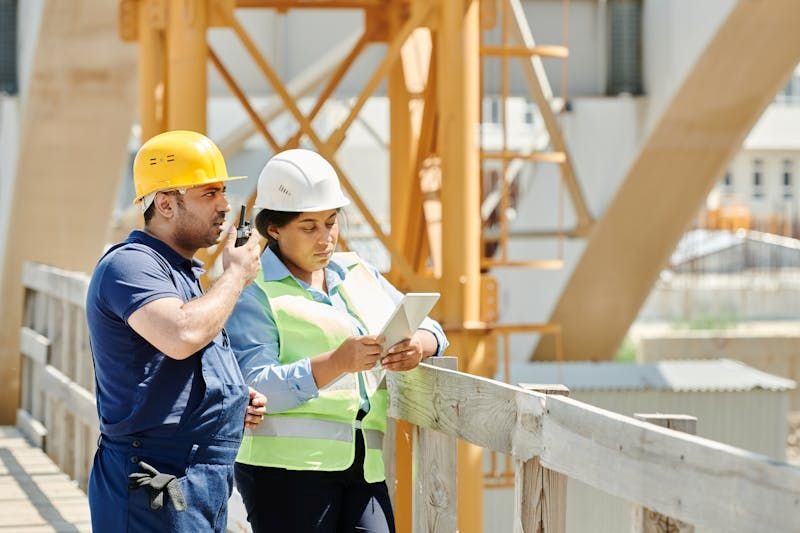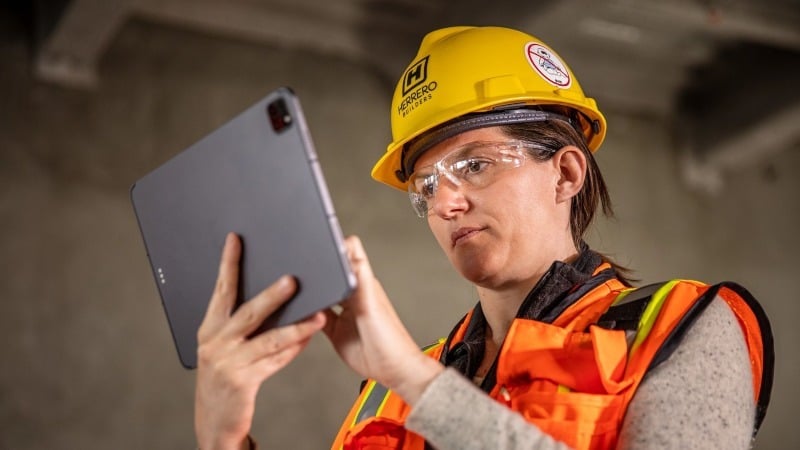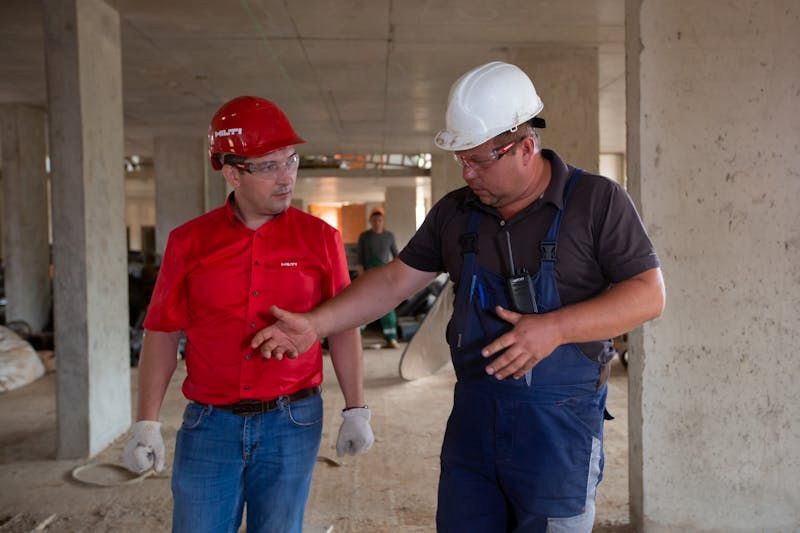
The construction industry in the U.S. continues to grow steadily, with increasing demand for qualified professionals to oversee complex site operations. Out of these roles, the construction site manager has a critical role in the adherence to projects, compliance, and maintaining coordination across teams and timelines. As infrastructure is rising, this job has a high potential for those who want to build a long-term career in construction site management.
Understanding what the role actually involves is key to building a clear path into the field. This means getting familiar with the day-to-day responsibilities, the skills needed for managing teams and projects, and the specific qualities most employers look for. All of these factors can have a direct impact on job opportunities and earning potential. For those with advanced certifications, the NVQ Level 6 construction site management salary may be notably higher. In the U.S, average salary of a construction site manager is about $39 per hour, reflecting the level of responsibility involved.
Who is a Construction Site Manager?
A construction site manager is a qualified professional responsible for directing how a project takes shape on-site. Their focus is on making sure construction activities align with approved plans, schedules, and standards. By working closely with engineers, contractors, and supervisors, they help coordinate progress at every stage. This is an essential element of the construction site project management as it covers the gap between the planning and work on-site.
Key Duties & Responsibilities
Here are the construction site manager’s duties and responsibilities:
- Inspects work areas regularly to identify delays, hazards, or quality concerns.
- Approves schedules for labor, equipment use, and material deliveries.
- Keeps the stakeholders informed of the project progress and records project deadlines.
- Leads on-site meetings to resolve conflicts and clarify tasks.
- Maintains accurate records of inspections, incidents, and regulatory compliance.
How to Become a Construction Site Manager? Education & Key Skills

Stepping into the role of a construction site manager isn’t just about knowing your way around a job site. It takes the right mix of qualifications, hands-on technical know-how, and people skills to keep things running smoothly, even when challenges pop up. Here's a quick look at what it takes to get started and grow in this role.
Education or Qualification
- A bachelor’s degree in construction management, civil engineering, architecture, or a related field is commonly required.
- Entry-level jobs only require associate or diploma qualifications, particularly in the case of vast experience in the field.
- Certifications offered by the industry, including OSHA, PMP, or CM-Lean, make it sound credible and may be mandatory to be hired by specific employers.
- Apprenticeship programs or trade experience can provide foundational knowledge and hands-on exposure.
- Continuing education or short-term courses in project planning, safety, and regulations are often beneficial.
Technical Skills
- Blueprint Reading: Capacity to read the site drawings, plan and the related technical layouts.
- Software Proficiency: Skilled in using construction site manager software such as Procore, AutoCAD, or Primavera for planning and tracking. Also, check top BIM softwares used by construction site manager here.
- Construction Knowledge: Strong grasp of materials, methods, and how different phases of work connect.
- Regulatory Awareness: Clear understanding of codes, permits, and construction site compliance.
- Budget Handling: Familiarity with estimating costs and managing financial tracking tools.
- Project Scheduling: Capability to create and track schedules that match the project phases.
- Quality Control: Familiarity with the inspection process and ability to comply with the set standards.
Soft Skills
- Problem-Solving: Quickly addresses site issues with practical, effective solutions.
- Communication: Shares updates clearly with workers, suppliers, and supervisors.
- Leadership: Guides teams, maintains discipline, and supports productive work environments.
- Decision-Making: Makes sound judgments under pressure to keep projects moving.
- Conflict Management: Deals with disputes in a mature way by maintaining operations steady.
- Time Management: Arranges work to achieve daily and long-term goals.
- Detail-Oriented: Maintains accuracy in documentation, safety, and on-site coordination.
Construction Site Manager Salary Around The World

Salaries for construction site managers vary across regions based on local demand, cost of living, and project scale. In many areas, site managers jobs in construction offer competitive pay due to ongoing development needs. The construction site manager salary in the UK is often shaped by industry standards and project complexity, while roles focused on compliance and oversight can influence the overall construction site safety manager salary.
Here is a table showing the average annual salaries for construction site managers in the US and other key regions:
|
Region |
Average Annual Salary |
|
USA |
|
|
UK |
|
|
India |
|
|
UAE |
Job Opportunities for Construction Site Manager

A s infrastructure development continues to expand across sectors, the demand for qualified construction site managers remains strong. These professionals serve as a central link between project planning and on-site execution, ensuring safety, timelines, and coordination are effectively maintained. The following roles represent common career paths and job opportunities within the field of construction site management.
Job Roles in Construction Site Management
Here are the key job roles typically found within construction site management, each contributing to project delivery and on-site efficiency.
1. Construction Site Supervisor
The supervisor at the construction site oversees the progress of construction activity on the site daily to make sure that the construction is done as per the agreed plans and safety requirements. In the field, they schedule the teams that work, oversee the work, and address operational problems to ensure that operations proceed in a smooth manner.
2. Project Engineer
A project engineer is focused on the technical expertise of applying engineering plans in the construction environment. They work with the design teams and site staff to clarify the specifications, troubleshoot design issues, and address other factors to determine that the construction is running as per the technical expected requirements.
3. Field Construction Manager
The field construction manager is responsible for directing the broader execution of work across active zones. They coordinate with subcontractors, watch schedules, distribute resources, and report on project progress and problems to senior project leadership to keep the project on schedule and within budget.
4. Construction Coordinator
A construction coordinator provides a smooth flow in coordination among teams like procurement, planning, and field operations. They assist in achieving efficient delivery of projects by aligning the flow of work in an organization, tracking material, and updating schedules, which lessens delays.
5. Construction Safety Officer
The construction safety officer is charged with the responsibility of maintaining safety standards on the site. They also carry out routine checks, ensure that the regulations of health and safety standards are observed, and provide teams with knowledge on healthy risk prevention to foster safe working conditions.
Also Seem How BIM is benefiting new age construction managers in 2026.
In Conclusion
Construction site managers ensure projects are safe, on time, and well managed. Their role connects planning with daily site operations, which makes them essential to successful outcomes. As demand increases across both public and private sectors, understanding how to enter this field becomes more important.
Getting certified can be a valuable step in growing your career. Taking a trusted course like the Building Information Modeling (BIM) Professional Course for Civil Engineers by Novatr helps build confidence and shows employers that you have the right skills. If you're looking to improve in areas such as site coordination, software, or safety, be sure to visit our resource page for reliable programs. With the right training and plan, you can move forward successfully as a construction site manager.
Was this content helpful to you



.jpg)






